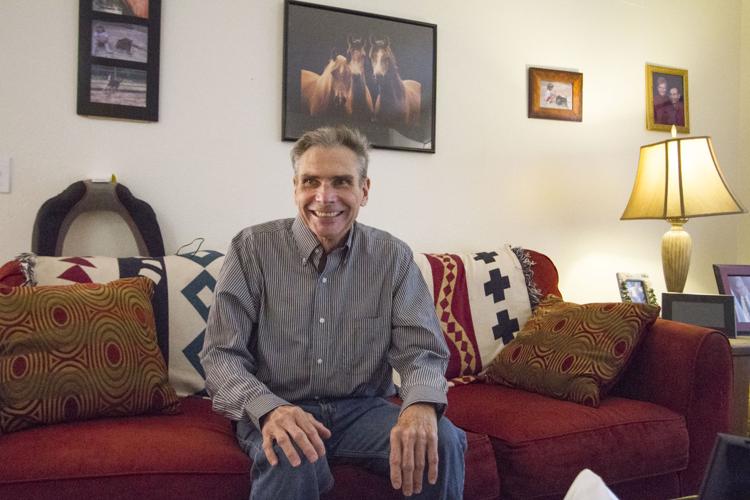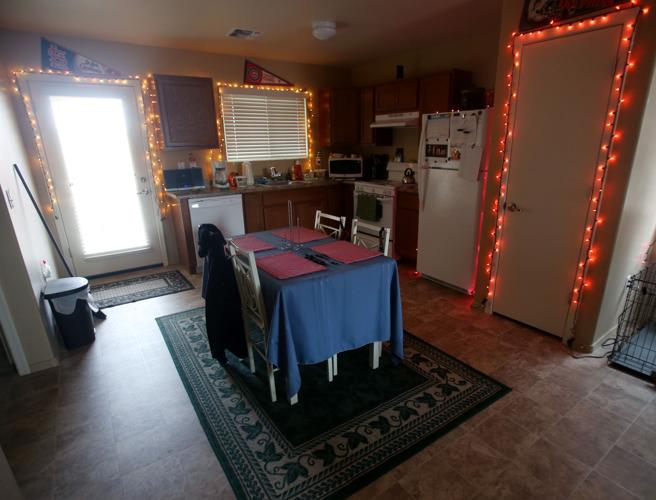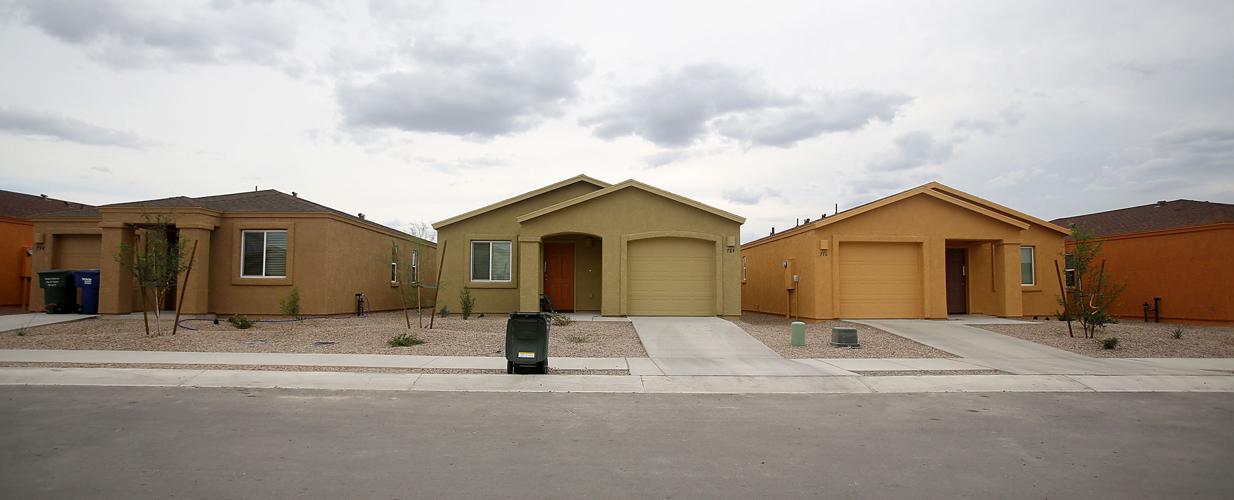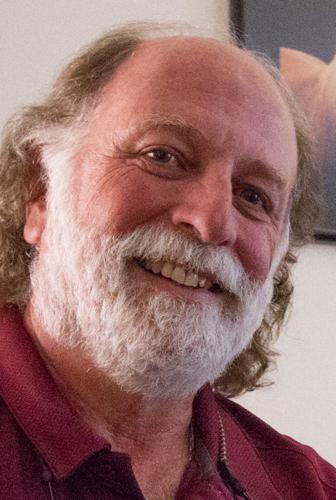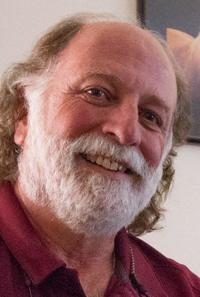A south-side housing community aims to fill a void for adults with developmental disabilities and their aging parents, offering supportive services to both in an affordable, single-family home environment.
“This is a wonderful option that has not been available in the past,” said Dan Ranieri, CEO of La Frontera Arizona. The behavioral-health provider’s affordable-housing division, La Frontera Partners Inc., operates the Sunnyside Pointe affordable-housing development in tandem with supportive services partner Community Provider of Enrichment Services, or CPES.
The latest stage of the development is Sunnyside Pointe Villas II. It offers 92 single-family rental homes — both one- and two-bedroom units — open to low-income residents over age 55 and adults with developmental disabilities. Villas II is just one stage of Sunnyside Pointe, located at 730 E. Emma Maria St. The 34-acre subdivision, near the intersection of South Park Avenue and East Irvington Road, will ultimately include more than 250 homes.
For Ranieri, the Villas II project has a personal component: He and his wife, Rhonda, are guardians to her 69-year-old cousin, Craig Schiek, who is developmentally disabled. Ranieri said he was struck by the lack of truly supportive, community-based options for his relative, who lived with his mother until her death a few years ago. Ranieri set out to create a place where adults with disabilities could live as independently as possible and have the option to live with their parents or guardian, who could also receive supportive services.
“That was the inspiration for it,” he said. “The plan was to create a community where you could have older adults with cognitive disabilities living with seniors, because the types of supportive services they need are very similar.”
Currently, the best option for adults with cognitive disabilities is living in an existing apartment complex and getting some in-home support services, Ranieri said. That style of apartment living can be isolating for residents, who might not interact much with their neighbors, he said.
Sunnyside Pointe Villas II homes have garages, patios and backyards. The community has on-site vocational training, a 3,150-square-foot community center, still under construction, and daily chances to interact with neighbors, Ranieri said. CPES provides residents with vocational training and in-home support services at a range of intensity levels.
“It’s nice to live in a place where there’s a community where you fit in, you feel safe, you feel supported,” Ranieri said.
Villas II, which is still under construction, will also have a coffee shop and mini-market where residents can do job training, and some will ultimately transition to competitive employment in the community, said Cynthia Gallon, who oversees CPES’ vocational program.
“That’s our goal — that folks have a chance to do real-time work, make money, then get a job they aspire to out in the community,” she said.
CPES tries to reach out to and educate Tucson employers who might otherwise overlook a potential employee who has behavioral-health needs or a developmental disability, Gallon said.
“They don’t know the person has tremendous charisma and work ethic — they just hear the label,” she said.
Decades ago, children with developmental disabilities rarely received early interventions. They often stayed at home indefinitely with their families or lived in institutions. Since the late 1970s, attitudes have evolved dramatically about integrating those with disabilities into educational and work settings.
“Most people now who have a developmental disability or autism are successfully mainstreamed,” Ranieri said.
“That’s a great thing. The problem is, you have this cohort of adults who grew up before that mainstream movement went into effect. We started Sunnyside Pointe with the hope of integrating these adults with cognitive disabilities into a senior community.”
Even for older residents, rehabilitative and vocational services can make a big difference in their abilities, said Kathryn Valles-Wallace, CPES director of developmental services and behavioral-health sites. Some of her patients are in their 70s, grew up in an institution and have made great strides by working with CPES, she said.
“They’re able to grow and become independent,” she said.
Sunnyside Pointe Villa II’s homes are energy-efficient and have modifications such as muted wall colors and quiet appliances to help residents with sensory sensitivity, which is common for people who have autism.
The housing’s allowable rents are determined by the U.S. Department of Housing and Urban Development, and will likely range from $314 to $535 for a one-bedroom unit and $381 to $646 for two bedrooms.


